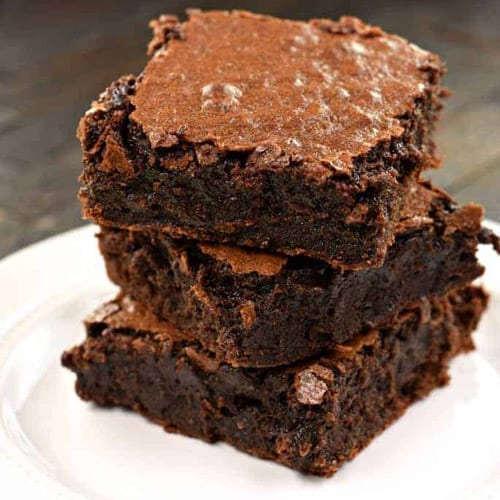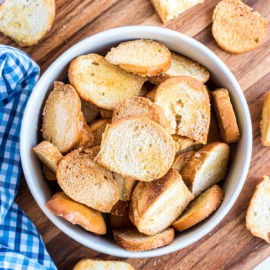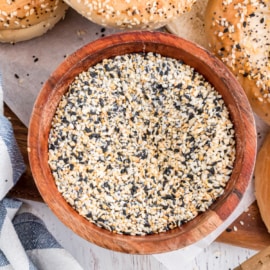What is kosher salt and why do we use it in just about all of our recipes? It makes everything taste better! Learn more about swapping table salt for kosher salt to improve your cooking and baking.

What is Kosher Salt
Kosher Salt is a coarse salt without iodine or other preservatives. Its name comes from its use in the process of koshering meat (a salting process to remove surface blood.) It’s used for so much more than that now!
Because kosher salt crystals are larger, it’s much easier to control the amount of saltiness in a recipe.
This makes kosher salt a must have staple for chefs, bakers and home cooks alike.
You’ll see almost 99% of my recipes call for kosher salt. From peanut butter cookies to oven baked pork chops!
What is the difference between Kosher salt and Table salt?

The salt in your average salt shaker contains iodine and anti-clumping agents. This might make it easier to shake onto your french fries, but the trade off is in the taste.
Iodine isn’t flavorless, and that flavor changes the taste of your food.
Iodized table salt is also processed much more finely. The crystals are extremely compact, while Kosher salt crystals take up more volume.
A teaspoon of table salt contains many more crystals than the same teaspoon filled with Kosher salt.
What does this mean for you? If a recipe specifies kosher and you use table salt instead you’re likely to end up with a saltier meal than you bargained for.
Does Kosher salt taste better?
Yes! Kosher salt usually contains few (if any) additives or preservatives. You get the mineral salt taste in its purest form.
The lack of impurities and light texture makes it perfect for blending with other ingredients. When I switched to Kosher Salt in baking, I noticed a difference right away.
In short, it does what salt is meant to do: enhance the flavor of food. Not overpower it!

Where can I buy kosher salt?
Almost any grocery store will have Kosher Salt on the shelf near the spices and seasonings. If your supermarket doesn’t stock it, you can buy this must have ingredient online. (it is more expensive online, and just a couple dollars at most grocery stores)
Depending on the brand, you might see this salt labeled as “Kosher Style Salt” or “Kosherized Salt.” All of these can be used in my recipes that call for Kosher Salt.
Other Types of Salt
While you’re picking up your box of Kosher Salt, take a look at all the other salt options on the shelf. Is your head spinning?
Let’s break down other types of salt you can use in your cooking and baking.

Sea Salt. This is another salt that’s pure, natural and minimally processed. Sea Salt comes in all kinds of textures from coarse and rocky, flaked, and fine granules.
You can use it as a substitute for kosher style salt in its coarse form. (you’ll see me using this on top of chocolate chocolate chip cookies, or salted caramel brownies)
Fleur de Sel. Translating to “flower of salt”, this French salt is harvested in its crystalized form from the tops of saltwater ponds. It contains less sodium than other salts and gives dishes a briny flavor. It’s used as a garnish for finished recipes rather than a seasoning.
Pink Salt. Naturally occurring iron oxide gives this rock salt its pretty hue. It contains slightly less sodium than kosher and table salt thanks to the presence of other minerals.
Black Salt. The presence of sulfur in Black Salt gives it a distinct “egg-y” flavor. Vegans often use it to mimic the taste of eggs in recipes. Just don’t use it in place of regular salt unless you want to give the meal a sulfur aroma!
Who knew a simple combination of sodium and chloride could come in so many different forms?
Now that you know why Kosher salt is best, take your newfound knowledge and get baking!





Love this post!! Will be sharing this info with my friends and family!
This post was so helpful and for informative! Thank you! Can’t wait to share this post with my daughter!
Great post and so informative. Thank you!